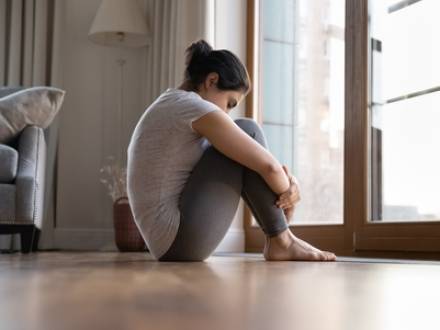Can I Get a Protective Order During Divorce Proceedings in Virginia?
 Virginia law allows protective orders during divorce cases if a judge believes someone needs protection. These orders offer you and your family immediate safety while the court decides on bigger, sometimes heated, issues in your divorce. A protective order can also help set clear boundaries so conflict does not worsen. Our McLean, VA protective order lawyers will guide you through the process of petitioning for a protective order during divorce.
Virginia law allows protective orders during divorce cases if a judge believes someone needs protection. These orders offer you and your family immediate safety while the court decides on bigger, sometimes heated, issues in your divorce. A protective order can also help set clear boundaries so conflict does not worsen. Our McLean, VA protective order lawyers will guide you through the process of petitioning for a protective order during divorce.
How Do Protective Orders Work in Virginia?
Virginia law provides three types of protective orders, each serving a different purpose and length of time:
-
Emergency protective orders last up to 72 hours. They are often issued after an arrest to give immediate safety until the courts are open and able to review the situation.
-
Preliminary protective orders remain in place until the court holds a full hearing, usually within 15 days. Under Virginia Code § 16.1-253.1, judges can issue these orders if there is proof of family abuse. This includes threats, violence, or force that makes someone fear harm.
-
Permanent protective orders can last up to two years. These orders may be extended and often include strict limits on contact, visitation, and access to the home or workplace.
Judges also have authority under Virginia Code § 16.1-279.1 to add extra conditions. They may order the other person to stay away, stop all communication, or leave the family home. Judges can also make temporary decisions about child custody or visitation. In some cases, they may give one person exclusive use of a car or require the abusive party to attend counseling. These protections help provide both safety and stability during a difficult time.
How Do You Request a Protective Order During Divorce in Virginia?
You do not have to wait until your divorce is over to ask for protection. You can file a petition for a protective order in the Juvenile and Domestic Relations District Court where you live. The process starts with a written request that describes the threats, violence, or harassment. Judges may review evidence, such as text messages, emails, or police reports. If the judge believes there is enough proof, a preliminary order can be granted the same day. After that, the court will hold a hearing where both sides can share their evidence and testimony.
How Can a Protective Order Affect Divorce Proceedings?
A protective order can affect decisions about child custody, visitation, and living arrangements. Under Virginia Code § 20-124.3, judges must consider any history of family abuse when deciding custody. This could mean limited or supervised visits for the parent accused of abuse. While these orders do not directly or exclusively decide issues like property or support, evidence of abuse can still affect how the judge rules later in the case.
Additionally, having a protective order in place may affect the type of divorce process you use. Options like mediation or collaborative divorce are usually feasible when there is open communication and cooperation between spouses. If there is a protective order, those methods are often not realistic or safe. In these situations, the divorce usually has to go through the court, with attorneys handling communication to keep both spouses protected.
Call Today To Speak With a Tysons, VA Divorce Attorney
At Salvado Law Offices, we understand that divorce cases can be sensitive. You deserve to feel safe while going through a process that is already emotionally difficult. Our team is ready to handle your case with the type of care that reduces the burden for you.
Attorney Carlos Salvado is a well-known voice in the Hispanic community. As a frequent guest on Agendo Radio, he speaks about issues that affect Latin Americans and immigrants. We are dedicated to our clients and our community, and you can trust us to fight for you. Call 703-379-9446 to schedule a private consultation with experienced McLean, VA protective order lawyers as soon as possible. Se habla Español.











